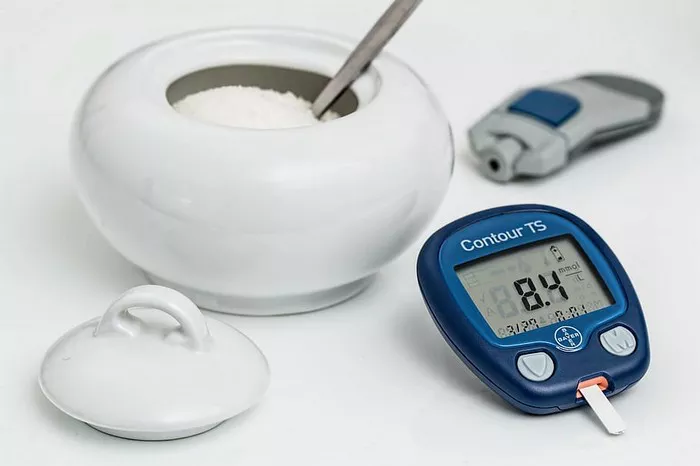High blood sugar, medically known as hyperglycemia, occurs when there is an excessive amount of glucose circulating in the bloodstream. Glucose, derived from the foods we consume, serves as the primary source of energy for cells throughout the body. However, when its levels become elevated, particularly over an extended period, it can lead to serious health complications. This condition is particularly pertinent to individuals with diabetes, where the body either does not produce enough insulin (type 1 diabetes) or becomes resistant to insulin’s effects (type 2 diabetes).
When blood sugar levels remain consistently high, it can damage blood vessels and nerves, leading to a myriad of health issues. These include cardiovascular diseases, nerve damage (neuropathy), kidney damage (nephropathy), eye damage (retinopathy), and an increased risk of infections. Therefore, managing blood sugar levels is crucial for individuals with diabetes to prevent these complications and maintain overall health.
Role of Diet in Blood Sugar Management
Diet plays a pivotal role in managing blood sugar levels. The foods we consume directly impact our body’s glucose levels, influencing how quickly they rise and fall. Therefore, choosing the right foods can help stabilize blood sugar and reduce the risk of complications associated with high blood sugar levels.
Carbohydrates, particularly those with a high glycemic index, have the most significant impact on blood sugar levels. High-glycemic foods, such as white bread, sugary snacks, and processed cereals, are rapidly digested and cause a sharp increase in blood glucose. On the other hand, foods rich in fiber, healthy fats, and protein are digested more slowly, resulting in a gradual rise in blood sugar levels and better glycemic control.
Foods to Lower Blood Sugar
Fiber-Rich Foods: Incorporating fiber-rich foods into your diet can help slow down the absorption of sugar into the bloodstream, preventing sudden spikes in blood glucose levels. Vegetables like broccoli, spinach, and Brussels sprouts, legumes such as beans and lentils, and whole grains like oats and quinoa are excellent sources of dietary fiber.
Healthy Fats: Healthy fats play a crucial role in blood sugar regulation by improving insulin sensitivity and reducing inflammation in the body. Avocados, nuts, seeds, and olive oil are rich in monounsaturated and polyunsaturated fats, which can help stabilize blood sugar levels when consumed in moderation.
Protein Sources: Including lean sources of protein in your meals can help slow down the absorption of carbohydrates and prevent blood sugar spikes. Options such as chicken, turkey, fish, tofu, and legumes provide a steady source of energy and promote satiety, reducing the urge to consume high-carbohydrate foods.
Low-Glycemic Fruits: While fruits contain natural sugars, some have a lower glycemic index, meaning they cause a slower and less dramatic increase in blood sugar levels. Berries (such as strawberries, blueberries, and raspberries) and citrus fruits (like oranges and grapefruits) are excellent choices for individuals looking to manage their blood sugar levels.
Specific Foods and Their Benefits
Broccoli and Broccoli Sprouts: These cruciferous vegetables contain a compound called sulforaphane, which has been shown to improve insulin sensitivity and reduce blood sugar levels. Including broccoli and broccoli sprouts in your diet can be beneficial for individuals with diabetes.
Seafood: Fish and seafood are excellent sources of protein and healthy fats, including omega-3 fatty acids, which have anti-inflammatory properties and may help improve insulin sensitivity. Incorporating seafood into your meals regularly can support blood sugar management and overall health.
Pumpkin and Pumpkin Seeds: Pumpkins are low in calories and rich in fiber, making them an excellent choice for individuals with diabetes. Additionally, pumpkin seeds are packed with nutrients, including magnesium, which plays a role in glucose metabolism. Adding pumpkin and pumpkin seeds to your diet can contribute to better blood sugar control.
Foods to Avoid
To effectively manage blood sugar levels, it’s essential to limit or avoid foods that can cause rapid spikes in glucose. These include:
Foods high in added sugars, such as sugary beverages, candies, and desserts.
Refined carbohydrates, including white bread, white rice, and processed snacks.
Saturated and trans fats found in fried foods, baked goods, and high-fat dairy products.
By minimizing the intake of these foods and focusing on nutrient-dense options, individuals can better regulate their blood sugar levels and reduce the risk of complications associated with diabetes.
Practical Tips for Incorporating These Foods
Incorporating blood sugar-friendly foods into your diet can be simple and delicious. Here are some practical tips for including these foods in your meals:
Start your day with a balanced breakfast that includes fiber-rich whole grains, protein, and healthy fats, such as oatmeal topped with nuts and berries.
Swap refined grains for whole grains in your meals, such as brown rice, quinoa, or whole wheat pasta.
Snack on fresh fruits, vegetables, or a handful of nuts to satisfy cravings without causing blood sugar spikes.
Experiment with different cooking methods, such as grilling, roasting, or steaming, to enhance the flavor and nutritional value of your meals.
Stay hydrated by drinking plenty of water throughout the day, as dehydration can affect blood sugar levels.
Monitoring and Adjusting Diet
Regular monitoring of blood sugar levels is essential for individuals with diabetes to assess how different foods and lifestyle factors affect their glucose levels. Keeping a food diary can help track eating patterns and identify foods that may cause fluctuations in blood sugar. Additionally, working with a registered dietitian or diabetes educator can provide personalized guidance on meal planning and blood sugar management strategies.
Consultation with Healthcare Professionals
While dietary changes can play a significant role in managing blood sugar levels, it’s essential for individuals with diabetes to consult with healthcare professionals for personalized advice and support. A healthcare team, including a doctor, registered dietitian, and diabetes educator, can help develop an individualized treatment plan that addresses specific dietary needs, medication management, and lifestyle modifications to optimize blood sugar control and overall health.
Conclusion
In conclusion, making informed dietary choices can significantly impact blood sugar levels and contribute to better health outcomes for individuals with diabetes. By focusing on fiber-rich foods, healthy fats, lean proteins, and low-glycemic fruits, while minimizing intake of sugary and refined foods, individuals can better manage their blood sugar levels and reduce the risk of complications associated with diabetes. With guidance from healthcare professionals and a commitment to healthy eating habits, individuals can take control of their diabetes and improve their quality of life.
Related Topics
- What Is The Best Oral Diabetes Medication?
- Foods that are good for lowering blood sugar
- To prevent diabetes what to eat

























